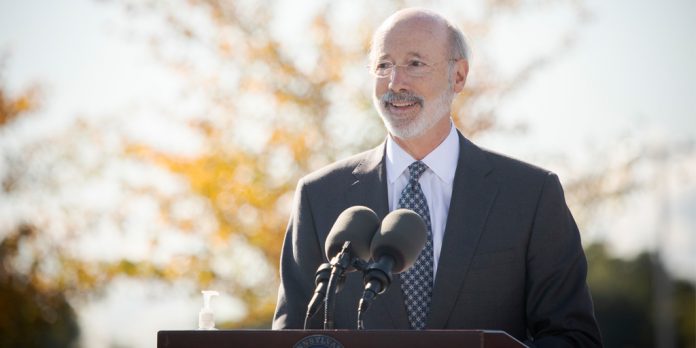Gov. Tom Wolf recently commemorated the 5-year anniversary of Act 16 of 2016, known as the Pennsylvania Medical Marijuana Act, which established the medical marijuana program in the commonwealth.
Close to 553,000 patients and caregivers are registered for the program in order to obtain medical marijuana for one of 23 serious medical conditions. There are more than 327,400 active certifications as part of the program.
“On the 5-year anniversary of the creation of Pennsylvania’s medical marijuana program, we continue to forge ahead in getting medicine to those with serious medical conditions,” Wolf said. “The work that the Department of Health does to ensure that products are available and that patients are able to receive medicine as seamlessly as possible, particularly during the pandemic, is exemplary.”
All of the 114 operational dispensaries are open and dispensing products to patients. Twenty-eight growers/processors are operational, with 23 shipping products to dispensaries. Many of these growers/processors have recently expanded their location, or are in the process of doing so, to help ensure that they are able to provide more products to those with one of the 23 serious medical conditions eligible for use of medical marijuana products.
“In addition to the well-run medical marijuana program, the department is very proud of its unique and first-of-its-kind medical marijuana research program,” said Acting Secretary of Health Alison Beam. “It is clear that the Pennsylvania Medical Marijuana Program is among the most successful programs across the country.”
The clinical research program, guided by Act 43 of 2018, allows for eight clinical registrants who each must hold both a grower/processor and a dispensary permit. Clinical registrants must have a research contract with one of eight approved academic clinical research centers.
Active cardholders are continuing to visit dispensaries more than once a month to get treatment for a serious medical condition. More than 31.2 million products have been sold since the start of the program, and total sales within the program are close to $2.6 billion, which includes sales by the growers/processors to the dispensaries, and sales by the dispensaries to patients and caregivers. More than $1.5 billion in sales has been from the dispensaries to patients. More than 2,100 physicians have registered for the program, more than 1,530 of whom have been approved as practitioners.
“From before I signed the Act, the state’s medical marijuana program’s success has been a tribute to the support received from patients and caregivers,” Wolf said. “The dedication from patients and caregivers in offering guidance and support is a testament to the value of this significant program.”
In order to get medical marijuana to patients during the pandemic, in March 2020, the program temporarily suspended certain statutory and regulatory provisions to:
– Allow dispensary employees to provide medical marijuana to cardholders in their vehicles on the facility’s property
– Remove the current cap that limits the number of patients assigned to one caregiver, to allow for more caregivers to patients in need
– Eliminate background checks for caregiver applications, limited to renewal applications only, in order to expedite the caregiver renewal process
– Suspend in-person consultations and allow for remote consultations between approved practitioners and medical marijuana patients
– Suspend limitation on medical marijuana dispensing to 30 days by requiring approved practitioners to notate on the patient’s certification to dispense a 90-day supply
– Suspend requirement for a medical professional – physician, pharmacist, physician assistant or certified registered nurse practitioner – to be on site at the dispensary during dispensing hours, which allows for medical professionals to work remotely
The statutory and regulatory suspensions will remain in place for as long as the Proclamation of Disaster Emergency is in effect.
Visit medicalmarijuana.pa.gov for more information.


